Random Thoughts on Chinese Philosophy
advertisement
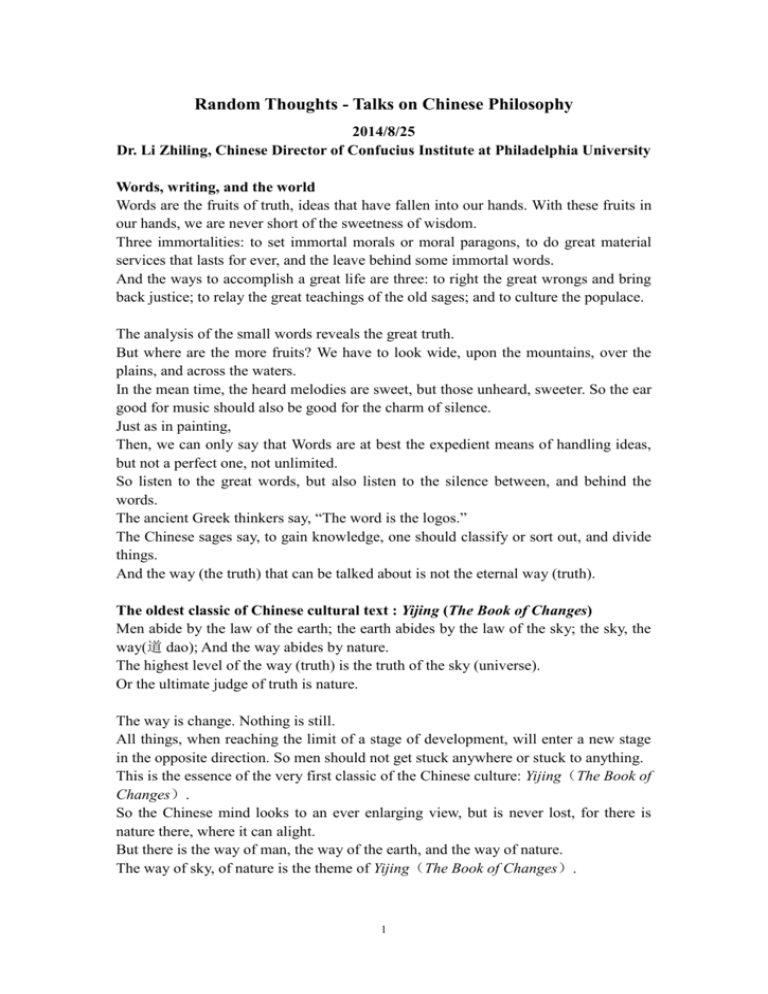
Random Thoughts - Talks on Chinese Philosophy 2014/8/25 Dr. Li Zhiling, Chinese Director of Confucius Institute at Philadelphia University Words, writing, and the world Words are the fruits of truth, ideas that have fallen into our hands. With these fruits in our hands, we are never short of the sweetness of wisdom. Three immortalities: to set immortal morals or moral paragons, to do great material services that lasts for ever, and the leave behind some immortal words. And the ways to accomplish a great life are three: to right the great wrongs and bring back justice; to relay the great teachings of the old sages; and to culture the populace. The analysis of the small words reveals the great truth. But where are the more fruits? We have to look wide, upon the mountains, over the plains, and across the waters. In the mean time, the heard melodies are sweet, but those unheard, sweeter. So the ear good for music should also be good for the charm of silence. Just as in painting, Then, we can only say that Words are at best the expedient means of handling ideas, but not a perfect one, not unlimited. So listen to the great words, but also listen to the silence between, and behind the words. The ancient Greek thinkers say, “The word is the logos.” The Chinese sages say, to gain knowledge, one should classify or sort out, and divide things. And the way (the truth) that can be talked about is not the eternal way (truth). The oldest classic of Chinese cultural text : Yijing (The Book of Changes) Men abide by the law of the earth; the earth abides by the law of the sky; the sky, the way(道 dao); And the way abides by nature. The highest level of the way (truth) is the truth of the sky (universe). Or the ultimate judge of truth is nature. The way is change. Nothing is still. All things, when reaching the limit of a stage of development, will enter a new stage in the opposite direction. So men should not get stuck anywhere or stuck to anything. This is the essence of the very first classic of the Chinese culture: Yijing(The Book of Changes). So the Chinese mind looks to an ever enlarging view, but is never lost, for there is nature there, where it can alight. But there is the way of man, the way of the earth, and the way of nature. The way of sky, of nature is the theme of Yijing(The Book of Changes). 1 The two most influential schools of philosophy in China: Daoism and Confucianism Then Lao Zi and Confucius developed the concept of Dao (the Way). Lao Zi(571BC- 471BC) Lao Zi holds that: After the appearance of man’s morals, there have appeared many false morals and hypocrites. To govern a big country is like stewing small fish, the gist is not to stir. To do something necessitates not doing other things. Doing requires doing nothing else. Doing nothing and Selflessness is often the required state of mind, then one can see the world clearly, and also one has the hope of finding and following the most natural way of existence, just as water, which never sticks to any shape, any definite course, but adapts to what ever it encounters. So the highest level of merit is like water. 2 And man should restore his aboriginal state of life and mind, reduce the need, cut the desires, give up the mortal cleverness, and take what ever is natural, even the natural pain and loss and come to terms with it. The followers of Lao Zi, whose chief concept is Dao, are named after this concept as Daoists. Many hermits came out of this school of thinkers. Confucius (551BC ---479BC )) Confucius is opposite to Lao Zi in that he advocated morals and pursued the actual method of improving man’s mind and finally approaching the way of nature. Confucius advocated learning, and kindness, valor, kindness, righteousness, propriety, wisdom and trustworthiness. Or humility ( modesty ) , tolerance, (forgiveness), trustworthiness, quickness, generosity. He emphasized fraternity, piety, and loyalty, and duty in general. So from the Confucian school of thinkers there have appeared many great scholars and statesmen. Later, the greatest ideal of Confucian scholars is established upon the teaching of Confucius: to know and let known the mind of the sky and earth, to have the life of the populace well taken care of, to pass on the ancient sages’ teachings in the danger of loss, and to bring about peace for ages to come. The Confucian ideal of education forms a cycle: What one gets from birth is nature, acting upon nature is the way (Dao), and the cultivation of the way is education. In a certain sense, Confucius takes the means suggested by Lao Zi as the goal of his ideal. About understanding, reading, and word again To understand something, we must, in a certain sense, stand under it. So all real understanding starts with respect, and appreciation, or the other way round, is immediately followed by respect and appreciation. So Chinese people respect the land, the sky, the way(the truth), and nature. Most importantly, the way or the truth of all things inheres in nature. And the ideal state of the mind and life is a union and harmony with nature. And to return to the topic of reading, the best state of understanding a book is no less than certain telepathy between the reader and the author. And in addition to that, a good book, and the successful reading of a great book always open one’s eyes to a larger world. And at the end, beyond the verge of words, we see we are facing the world. But this time, it is a clearer view. And finally, the overall consequence is a closer connection between the reader and the 3 world. And the greatest book, is the world. So the word and the world shine upon each other, and form a beneficial cycle. And even with words, and books, what makes the real difference all the time, is the choice we make. It is our choices that show and make us what we truly are, far more than our abilities or what we do.(end) 4

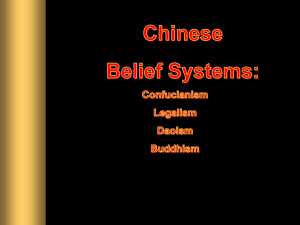
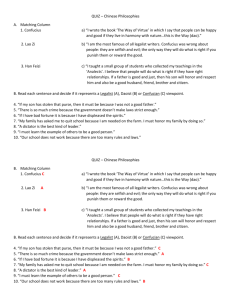

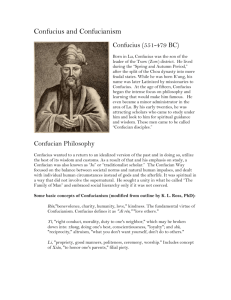
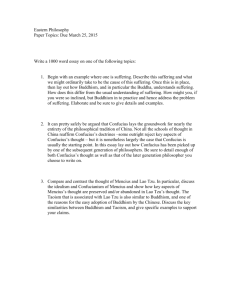
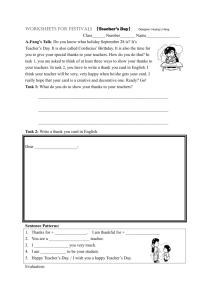
![Workshop 5 [DOC]](http://s3.studylib.net/store/data/006920430_1-20505c147edb9eed05d69d9c8ea57c6b-300x300.png)